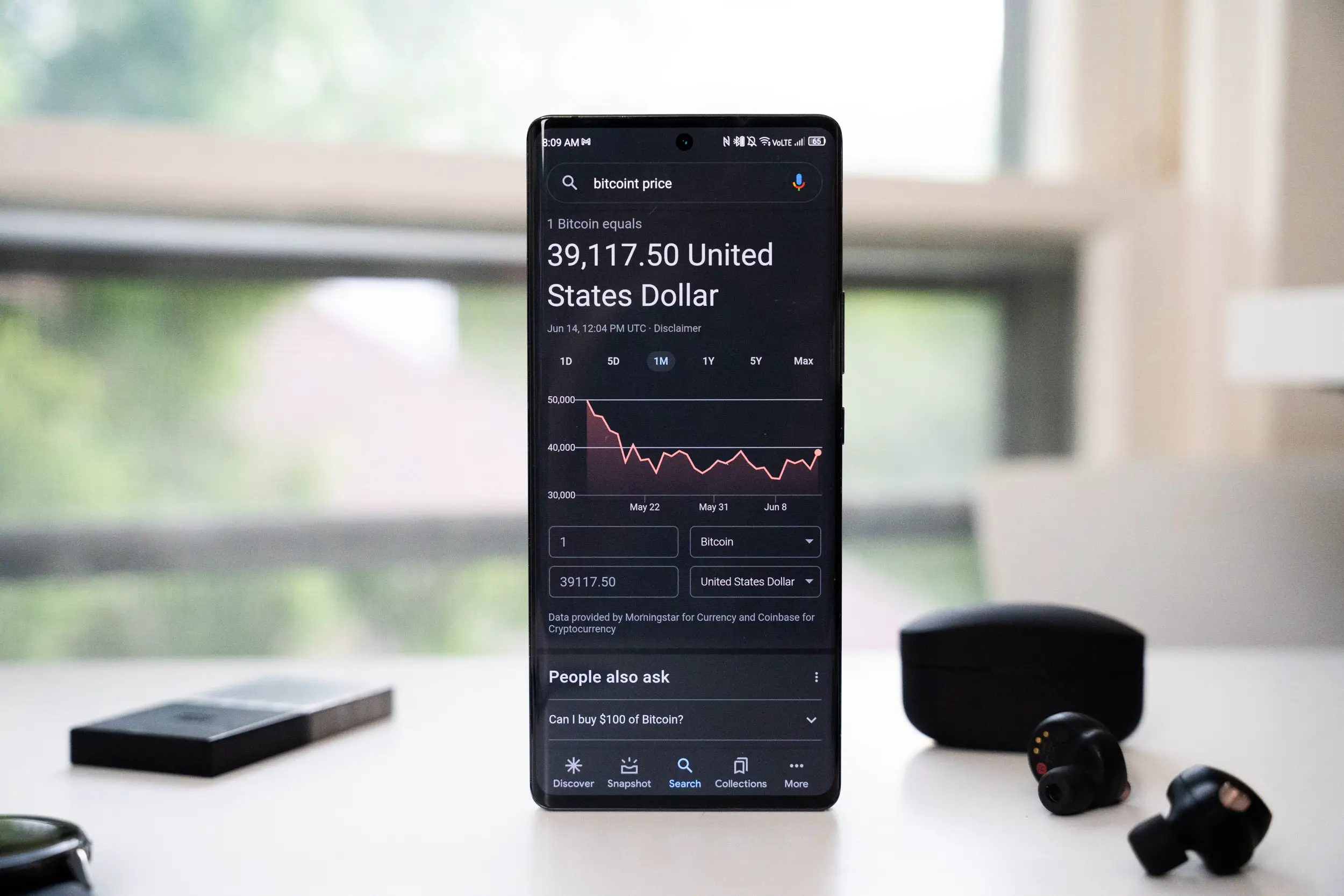T-Mobile’s Chief Marketing Officer, Cole Brodman, has suggested that carriers need to put an end to device subsidies to fix the undervaluing of handsets by users. Speaking at the GeekWire conference in Seattle, Brodman said
“It (subsidies) actually distorts what devices actually cost and it causes OEMs, carriers — everybody to compete on different playing fields… And I think it is really difficult, especially from a consumer perspective, because it causes consumers to devalue completely the hardware they are using…. It is amazing hardware, but it has become kind of throw away. So, it is unfortunate, you’ve got dual-core, multiprocessor devices with amazing HD screens that get thrown away at 18 months.”
T-Mobile deserves to be applauded for at least having some worthwhile off-contract plans for those who’d rather pay the full price of a device up front (I’d prefer if someone can confirm this in the comments, being in India I’m not a 100% certain of this). However, I must say that Brodman’s barking up the wrong tree if “undervaluing” of devices is actually that big a problem.
Even if a person purchases a device on contract, he values it greatly because of the contract. Lose it or break it, and you know you’ve got a large amount to pay to get a replacement. So I can’t see why a user would actually undervalue it because of the contract itself.
However, what does cause the “undervaluing” of handsets are the lack of software updates from the manufacturers. A perfect case in point is the issue with the Samsung Galaxy S. When a flagship device does not receive the latest version of Android that was released within 18 months of the phone’s launch, simply because of the company’s custom skin, it leaves users with no option but to look for another device that does offer the best Android device.
It’s nearly a year since the “Update Alliance” was announced at Google I/O, with all companies and carriers working on a promise to provide timely updates for at least 18 months. It was one of the highlights of I/O 2011 for me, but unfortunately, the situation has only gotten worse.
So, Mr. Brodman, I agree with you when it comes to offering users with cheaper contracts for those who’d rather pay up front for the phone, but there’s a bigger issue at hand. I use your myTouch 4G, I love the phone, and can’t point to any real reason to change it one and a half years later.
But I do feel tempted to cheat on it since it’s still on Gingerbread.
[via Briefmobile]











Brodman’s point is completely off the mark. The subsidy is not just to lock a customer to a 2-year contract, it’s also to lock the phone to a specific carrier. Why would I pay full retail price up front for a T-Mobile phone and can’t take it with me to other carriers, etc.
Another way to look at it, we are just leasing the phone for 2 years.
Some of the new T-Mobile phones are now Quad band so you can actually take them to AT&T, The only one I can think of top of my head are the SGSII and Moto Photon but I’m sure there’s more.
Sprint phone doesn’t work on any carriers except Sprint. Same with Verizon. The quad band is good voice only, you don’t get the full data speed across carriers.
You can’t compare a CDMA network to a GSM network. But Verizons HTC Rezound even though a CDMA phone is said to have GSM radios in it. The whole point of Quad band for America is so it has AWS and HSPA+ for both AT&T and T-Mobile so you pretty much do get full data speeds with them latest quad band phones (select few though), Again CDMA networks don’t count because they are a bastard child but if you must then you could connect to a MVNO (like Straight Talk) that piggy backs onto the CDMA networks and pay less.
Look at the list of MVNO here http://en.wikipedia.org/wiki/List_of_United_States_mobile_virtual_network_operators
You have decided not to count CDMA, so forget about the users in the USA, China, and South Korea, many other countries. I am sorry CDMA still counts.
CDMA has reached its end of shelf life as is, it’s on life support now. The biggest CDMA chipset developer Qualcomm has long gone over to GSM and LTE especially now that LTE is being deployed on all of the major US telcos
You are missing the point. I buy a Straight Talk phone, then where can I go with the phone after Straight Talk?
Then look at the phones offering at Straight Talk. They are all cheap phones for price-sensitive customers. There is Nexus or iPhone, etc.
You are still avoiding the question by using technical information to justify your claim.
It’s a business case, just like BetaMax vs VHS or HD vs Blueray.
Please answer a simple consumer question. What am I going to do with Sprint, Verizon, AT&T, Straight Talk phone, etc. after 2 years? Why would I pay full retail price for it?
How the hell did a story of T-Mobile not wanting to do subsidies because CONSUMERS/USERS under value their devices turn into a bash for Samsung under valuing their devices/consumers just because you don’t have a ICS update (or was even promised it) ? The Android Alliance was only announced in May 2011 for devices released AFTER the announcement (so far each of the companies have pretty much kept to their words if you check). The Galaxy S was released a good 12 months before it, ICS was also released officially in Dec 2012 for the Nexus S which was the first official port so that makes it 18months AFTER the Galaxy S was released so even if the Android Alliance was in effect then it would have pretty much been void anyways (there’s still no official ICS roms for any Samsung devices released YET). So seriously, get off your high horse and go install one of the many beta ICS roms (CM9/MIUI 4.0 or AOKP). BTW, Quite a few Euro (Also most Asian) countries already don’t offer subsidies so this is nothing new. Looks like America is finally looking at how the world does business and taken note (like the data limits bs)
This isn’t bashing Samsung alone. This is bashing the lack of updates from all the manufacturers. The myTouch 4G I use is T-Mobile branded and manufactured by HTC. You’d be amongst a very tiny minority if you suggest that OEMs attitudes towards updates is acceptable.
Additionally, the ICS source code was released in Novemeber, the Galaxy S was released in June 2010, so that is inside 18 months. It is also known that the reason Galaxy S owners won’t be getting ICS is because of TouchWiz. And you say there’s no official ICS port for any Samsung device. Four months after the release of the source code, doesn’t that point out quite well that we’ve got a problem here?
I’m in India, and we don’t get any subsidies any way (just cheaper plans to offset the cost of the device over the course of two years). America isn’t learning from the rest of the world, they know fully well that they can offer unsubsidized, off-contract devices. But they don’t want to because contracts guarantees money for them.
There is nothing to be learned. Subsidy or no-subsidy, it’s a just different business model. In USA, you can pay full price for a phone if you want, just go to Apple and buy an iPhone outright.
The only reason Tmobile is complaining here because they don’t have the cash right now to subsidize phone and compete against other carriers.
You are right. I can buy an unsubsidized phone right now. The point is that with most carriers that’s not going to do me any good. My monthly bill will remain exactly the same. The only difference is I will not be on a two year contract.
if you want the unlimited data, unlimited texts, unlimited minutes from t-mobile for $50 per month, you cannot get a subsidized phone. you have to purchase the phone outright. so there is a big difference in choosing a subsidized phone and paying more monthly, or buying the phone outright and paying less monthly.
Please take a moment to re-read my post. I believe the CMO was speaking of American companies in general. Of all of them. TMO is the only one that offers a reduced monthly bill off contract. The vast majority of them do not incentivise going off contract, thus giving their users very little reason NOT to subsidize costs. More specifically, this comment was a response about buying an iPhone outright. This will do nothing for your monthly contract, unless of course you are planning to use the thing on TMO, which will have you limited to edge data anyway (int he vast majority of markets), in which case I would find unlimited data to be a waste.
I know the source code to ICS was released in Nov so that’s why I used the Nexus S as a example/benchmark as it was the first _ported_ device (And a Google dev device) and yet it to this day has problems with the update as some still haven’t gotten it . People assume the SGS isn’t getting ICS because of TouchWiz but it CAN be done, You just need to repartition the internal 2GB storage space to 1.5GB and make the /system partition bigger. But that won’t work because people want a update that doesn’t factory reset their stuff, Frankly ICS isn’t anything special that Gingerbread (other then HW acceleration but it’s nothing fancy, I have both SGS and SGSII so I can tell) can’t do if you know what apps to install.
Telcos can and already offer unsubsidized plans on contract, all they do is shorten the life of plan or make it better value then a pre-paid deal (more data or just charge in smaller blocks), They already have BYO contracts which locks you into the telco where I’m from and I don’t see why USA can’t do it. I’m on a BYO contract for my brought outright SGS now.
“Frankly ICS isn’t anything special that Gingerbread (other then HW acceleration but it’s nothing fancy, I have both SGS and SGSII so I can tell) can’t do if you know what apps to install.”
You’re in a very, very small minority.
Yes, one of the few that don’t go around feeling entitled and whine and cry if I get things late or not at all.
What you call self entitled whining I call constructive feedback. Your comments sound more whiny than the authors post.
Couldn’t have said it any better!
Any frankly, I have yet to meet a guy with an android device that is anxiously awaiting the update to ICS. Most people don;t even know what ICS is! Only we, the android news readers and the developer’s community are actually dieing to get our hands on the latest updates. So I hardly think that plays a big part in the smartphone valuation process of the average consumer.
I wrote an article about this a few weeks ago. I don’t know if subsidied can be removed entirely, but the first move will be to implement a standard subsidy policy across OEMs.
http://www.tech-thoughts.net/2012/02/future-of-iphone.html
How do you have a ”
standard subsidy policy across OEMs”, as subsidy is provided by the carriers to attract and retain customers for 2 years, not the OEMs to end users. Apple gets the wholesale price of the phone whether it’s sold through carriers or off Apple store.
I like how this story was only fit for a brief mention in Android overload a few days ago, but when Engadget posts about it, phandroid does, too.
I actually read it on Briefmobile (as credited in the source tag)
I disagree. It’s not the OEM’s who are slow with the updates. It’s the carriers who are slow because of the added bloatware. What I will blame the OEM’s for is the overplayed skins like Sense, MotoBlur, and Touchwiz. What needs to happen is that all of the OEM’s be required to offer Android on stock.
I believe it’s neither. Why would a company invest time/money into updating a device that has planned End-of-Life of 18-22 months.
Because customers paid a lot of money for their device. It should be supported for a reasonable timeframe regardless when End-of-Life is.
Okay, to your point. As a company we will budget the expenses to support the device for 10 years. For the additional future expenses, the price of the device will be higher.
Are you ready to pay more for the device?
Just look at iPhone. You want more coverage, buy the Apple Care plan. You more a 10-year factory warranty on your Sony TV, be prepared to pay more.
We pay enough for phones that support should be included for a reasonable time. 10 years is not reasonable. 18-24 months is. This is especially true for companies that agreed to Google’s update proposal since they set customer’s expectations by agreeing. Clearly you haven’t paid full price lately for a phone otherwise you would feel the same.
You are absolutely correct!
I have had a cell phone since 1992, and I had NOT paid full price for a phone since 1997. I don’t buy phones, I “lease” them from Sprint for 2 years. After 2-years I lease a newer, faster, and better phone for another 2.
Which option is better? Getting a subsidized phone every 18-22 months and not worry about warranty and software upgrade. Or paying full price for a phone and force to keep it for 5 years and has to worry about warranty and software upgrade. It’s a personal choice.
The only thing I have to say to T-Mobile Cole Brodman, “when my Sprint contract is up, show me the money and I will switch over!”
No the point that was missed is the manufacturers are not competing on price with billions of customers but only competing on price selling to 1000 operators around the world. Prices on handsets would come down if the operators weren’t selling handsets but the manufacturers were.
It’s all just spittin’ into the wind. So long as even one carrier subsidizes phones, they pretty much all have to. Sure, you can make the claim that you can get cheaper service rates with unsubsidized phones (though not much), but how many people will want to pay $200 more for a phone?
Maybe if the carriers lowered the. Monthly cost for people that pay full price for. I have no problem paying full price for a phone but the carriers need to give up anlittle profit look at SMS it cost the carriers nothing as it is part of the phone system but they charge us for using one way or another. As for CDMA its dying in the water its kind of 8 tracks people still have them but its not the best. GSM is worldwide might as well go back to TDMA if you like cdma its outdated like the space shuttle’s that’s why it need to retire also
I switched to a T- Mobile unsubsidized plan and saved over a third on my monthly bill. The savings are there. And when I update from my myTouch 4G Slide I’ll probably do it on Ebay for significantly less and not extend my contract.
SMS does cost money, though it is highly profitable. The carriers (though I dont know if all…) dont even manage SMS but a third party company called Sybase. If anything..that means less profit for the carrier.
He misses one other part of the equation. The hardware itself being obsolete before it even hits the consumer on the networks. The game of one-ups-man-ship is so fast any more that the consumer is easily distracted by the new “shiny” and quickly forget about the “old”. Would the old still work? Sure, but who wouldn’t like to have the latest and greatest? Gotta keep up with the “cool kids” after all.
(Disclaimer, oddly, I’m still using my old Nexus One because I just can’t find the right combo of hardware and software that is a suitable replacement.)
I like their off contract plans and its one reason to stay with them. Hopefully T-Mobiles network can support the iPad someday. Even sprint is going to have the 4G iPad. http://detectapple.com/sprint-to-offer-4g-new-ipad/
timely updates for 18 months? so then how come the Droid 3 wasn’t even listed as a device getting the ICS update, considering it was released around 8 months ago.
agreed.
What a complete knob this guy is and who throws away handsets, is he retarded !!
The problem is not carrier subs. The problem is the relentless pace at which phone makers, especially Samsung, release “new” technology. They add a core or a few MHz to a processor, a slight GPU tweak, or some other minor hardware upgrade, then release a whole new line of phones to each carrier. When they release updates/new models multiple times per year it devalues the existing tech in peoples’ hands.
I know it hurts to say Apple does something right, but from a hardware perspective they got it right. It’s not that their specs are the most leading edge, but their once-a-year release cycle helps maintain the value of their products.
If each Android handset maker throttled back to once-a-year releases, the value issue would be much less an issue.
To me the issue of updates is non-existent. I am no update junkie any more, since Gingerbread provides every-damn-thing I need from my smartphone. The issue in Canada (Rogers in particular) though is that you can’t get a special rate if you buy an unlocked phone. You sometimes can get even greater rate if you do go with a long contract.
I like the idea of getting discounted service when I buy my phone outright (which is what I tend to do anyways). The problem is, none of my phones would support T-Mo’s 3G/4G bands. Edge just doesn’t cut it; not in today’s world. Hence… I am stuck with AT&T. There needs to be some unification with the carriers and what bands they operate on (specifically the GSM operators, as I don’t care much for CDMA).
Why dont you like CDMA? There are a lot of benefits to it…more so than GSM, which is only more widely used due to being much cheaper to build.
GSM is more of a world standard, CDMA not much so. Also, while LTE will alleviate the problem of no simultaneous voice+data on CDMA networks, it still hasn’t rolled out to many areas. GSM has been able to do this for some time. Switching networks is as simple as switching SIM cards on a GSM network, whereas the hope of using a Sprint/Verizon phone with any other carrier is… well, not worth the headache (if the model would even be supported). Thus, the benefits of GSM far outweigh anything CDMA may offer imo.
What I want is a phone that will find the low cost carrier for every call. The carriers are pirates holding us prisoners. Optical transport is free. The airwaves belong to us! But the so called cell phone companies put there bloated ware on the locked up phones and put us into kleptocontracts and bleed us to death. All my phones are unlocked and rooted and I hate TMobile and all the rest. All we need are wifi transcievers that are a little more powerful and no more cell towers!
I have a dream! Freedom!